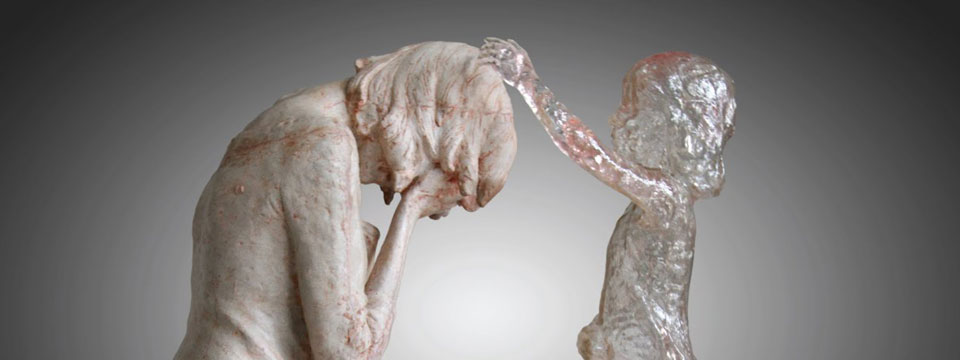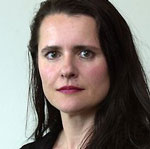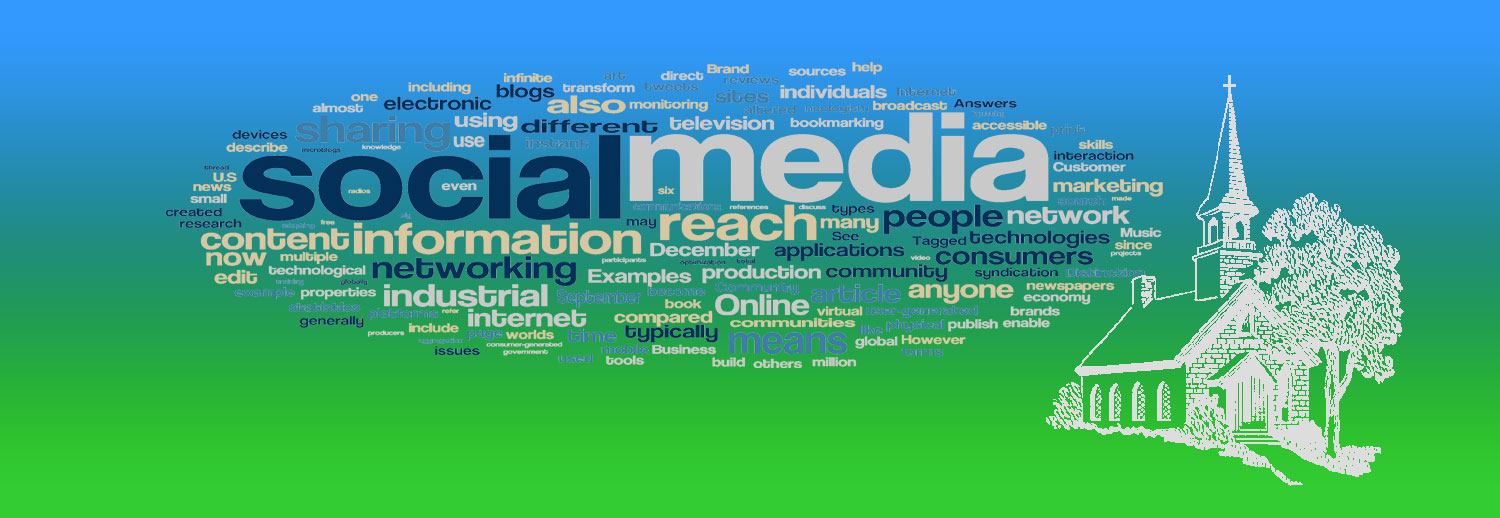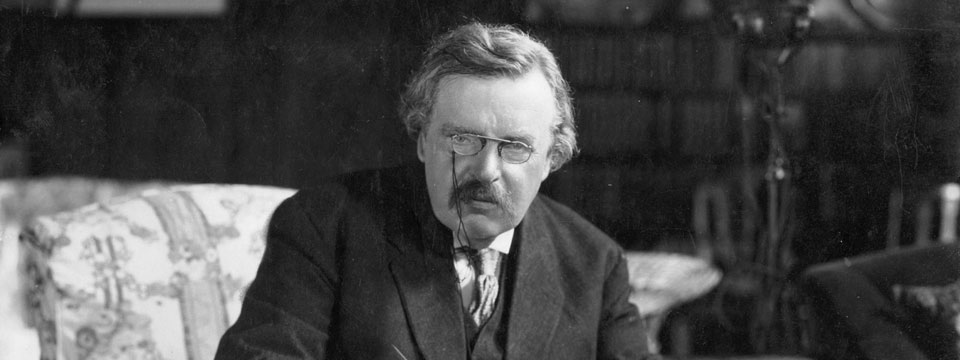In 2002 I had a book published called Giving Sorrow Words, I wrote it because two women told me their stories about abortion within a week of each other. They were really suffering, still in shock. They had no idea abortion could do that to you. I wondered how many other women had suffered grief and regret like they had. So I placed some advertisements in women’s magazines like New Woman, Cosmopolitan and Cleo, it reads: “Abortion Loss: Writer seeks women to contribute first-hand accounts of pain, loss and regret following pregnancy termination for a book.”
I was overwhelmed with responses. Teenagers, elderly women, migrant women, poor women, rich women, women who had had one or two abortions, others who had had five and one who had undergone twelve! I want to share some of these stories with you because I think it is important to understand what abortion does to women and to recognise the need to offer real choices to show that we care about women and babies and want to defend both. There were themes common to all the stories – the grief, the lack of proper counselling/information and a lack of real choice and support. Women were not aborting because they were exercising some wonderful reproductive right, but because they felt pressured and coerced into unwanted abortion. We need to start talking more about “unwanted abortion” because this is the reality for so many women.
Grief
So, let’s first look at the grief.
Women who leave their beds at night to breastfeed a “crying” (aborted) baby; women who buy teddy bears they pretend are their babies; women who cut themselves with razors; women who visit the grave of someone else’s dead baby; women who make a birthday cake and blow out the candles every year … these are some of the experiences of lasting emotional shock and chronic sadness that I collected.
Jane from WA wrote: “The pain is indescribable … The abortion has blown my life apart, blown my entire self/ psyche/soul/belief in myself apart. It has devastated me.”
Another Jane, 19, had an abortion in Melbourne. She wrote: “I still get emotional when I see young children, especially young babies. I look at them and think T killed one of you’… I’ve always wish I kept it. Would it be a boy or a girl? what would I call her/him? would he/she look like me? I even recorded the day my baby was due to be born on my calendar. I wish I had done what I wanted to do about my pregnancy, not what everyone else wanted me to do. After all it was inside me, it was part of me. And now I have to live with this guilt for the rest of my life.”
Melanie wrote: “Over the next three months I suffered so much pain, anger and loss that I stayed home from school and slept and did nothing day in day out. Every night I would cry my self to sleep praying that God will send my baby back to me.” Four months later Melanie was pregnant again – a pregnancy she hid until four months gestation “so no one could take him away from me.” But now, “every time I look into my beautiful son’s eyes I think of how I took the life of an innocent baby several months earlier…. I really believe that when I had the termination a part of me went too.”
Michelle related these effects: “I became slowly more and more seriously depressed. I lost all of my motivation and drive to do anything and my ability to cope with everyday life disintegrated day by day. Sadness swept over me and shadowed every cell in my body. I started to want my baby back… My heart was broken in a way I could never imagine. I ached to the bone and in my soul as well. Everyday that I woke up was like another day in hell, and getting out of bed was an almost impossibility … over a six-month period I lost approximately 20 kilos. Today I am still very angry at the abortion clinic for not warning me about the dangers of post abortion grief….”
Susan wrote: .”.. My self-esteem plummeted, I no longer cared about work, I abandoned my studies, I drank like a fish. One night I found myself sitting in the gutter, drunk and crying, wondering what the hell was happening to me. It was like something in me died the same time my baby died.”
Dianna felt: .”.. Duped, lied to, ignored, discriminated against unloved, unsupported, violated and left for dead.”
Ginger’s Jewish heritage weighed on her after her abortion: “My family’s from a Holocaust background, and I made my baby die in the same way, being burnt in a mass cremation, with no grave, no service….”
Sue wrote: “The pain feels like it wraps itself around my chest and burrows into my stomach like a poisonous worm… the grief and guilt I feel about destroying my child ricochets into my soul … The experts talk about choice but I would not have chosen this had I know… How do I comfort myself when my insides feel like they are being fed through a mincing machine? How do I stop my chest from hurting and my arms from wanting to hold my little human being? How do I forgive myself … ?” Julia wrote: “Abortion rips to the core of a woman in a way no experience does….”
In a profound description of abortion’s impact on her, Simone wrote: “I’ve lost my spirit, the core of my being which was my soul… life and love within has left me instead there is an emptiness, a nothingness, a lifelessness… where once life, love existed there is now just misery and a void.”
Something inside me died … the death of the soul… these were common refrains in the stories of many women.
Lack of information and/or poor counselling
For so many operating in the “pro-choice” mentality, the right to choose is really the right not to know. This patronising attitude holds that women are such poor decision makers and so easily confused, that they must be denied information relevant to their future health. Abortion providers maintain power over women by controlling information about the nature of abortion, its risks, and the availability of options.
The women’s stories raise serious questions about pre- abortion counselling. The women felt poorly treated in the pre-termination process. Women feel cheated that abortion was presented as quick, easy, over with when the reality turned out to be very different. Counselling, where it is offered at all, is too often token, and the risks played down. Their ambivalence was either dismissed or exploited to secure a “yes” decision, risks were not mentioned or downplayed.
Linda described her experience: “She asked if this is what I wanted to do. I said, ‘I didn’t know.’ She said ‘well you are here so it must be.’“
Sue was a teenager in South Australia when she sought counselling: “They gave me no options and no information, my rights as a human being were not valid because of who I was, just another stupid teenager who got pregnant. I wanted so much to talk to someone, maybe someone would say, ‘Don’t do it, I will help you through, or maybe you can keep your baby there is help available and there are people who care,’ but instead I was herded into a room with about
10 other girls like cattle and spoken to like I was a piece of dirt and treated as such.”
Mary, aged 23 from Melbourne wrote: .”.. I was in the abortion clinic. I was crying my eyes out, saying over and over that I did not want the abortion. I was desperate; I knew it was impossible for me to stand up to my boyfriend on my own, but I thought that this ‘counsellor’ could support me and perhaps help him to see reason. Instead, she sided with him completely. I now had not one, but two people vigorously haranguing me; I was saying over and over that I wanted to have the baby, but the two of them just bulldozed over me completely. I felt cornered. I was sitting down, and they were both standing over me. I had once received training in how to close a sale, and I felt that this “counsellor” must have been to the same sales training seminars … Whilst I was still crying my eyes out, an appointment was made for my abortion to be carried out the following week….”
Cathy from Sydney, also had a negative experience with a family planning counsellor:
“The lady who met me there [at the local Family Planning Service] treated me as rudely as anyone could treat someone, there was no caring or concern in her manner. No options were presented to me. She said I was stupid to get pregnant and as I was 18 and at university she ‘presumed I wanted an abortion.’ I remember asking about the difference between local and general anaesthetic and she said ‘have [a] local as then you will know it has happened and never make this mistake again.’”
Samantha, from Melbourne, wrote: “I had to stumble through a system which was not supportive of my emotional needs, and I certainly did not make an informed decision. At no stage did they discuss the alternatives, or the procedure, possible effects or how I felt for that matter … no professional created an opportunity for me to discuss anything, really … no one that I came across ever said to me, ‘why is this happening to you, what is wrong, why have you had more than one abortion, what can we do about it?’ “
Genevieve from Canberra had a particularly harrowing experience: “This counsellor’s approach was rushed and unsympathetic … [she] seemed surprised about my reluctance to proceed with the abortion … She asked me ‘What are you afraid of?’ “ Genevieve had cancelled two appointments. Before the next appointment, she spent four hours walking around the clinic, confused, her mind battered by conflicting thoughts, incapable of making a decision.
“I collapsed in sheer exhaustion. I told her that I had been outside for hours. I cried hysterically curled over with my head in my hands on my knees. I said that “I feel like I’m depriving my child of life.” Our conversation was cut short by the doctor. The pressure was on. I stopped crying in disbelief when the counsellor told me that if I was going to abort then I would have to do it right now. The counsellor said ‘Look, I’ll give you five minutes to think about it and when I come back, I want your answer’ I couldn’t believe it. Now I was going into a state of panic and shock. I could now barely speak… The counsellor glared at me, sighed a deep sign and impatiently said ‘Look, they’re all waiting for you, you know.’ “
Girlfriend magazine ran a feature called: “You’re pregnant, now what?” Under the heading, ‘Having an Abortion,’ it read: ‘There is no evidence to suggest that a straightforward abortion has any effect on future fertility or any other aspect of general health’,” quoting general manager of Marie Stopes International, the world’s biggest abortion provider. No evidence! Under the section “Where to get help” is listed Family Planning and Marie-Stopes International (an international abortion clinic chain). This isjust one example of the poor quality “education” young women are receiving about pregnancy and abortion.
Under “Keeping the Baby,” our young woman reader is told that if she does so, her parents will not support her, she’ll get kicked out of school, her boyfriend will clear out and – horror of horrors – she won’t have time to read Girlfriend magazine. In a particularly cruel warning, which plays on a girl’s fear of abandonment and being left out, she is asked: “How will you feel when your besties stop coming around because, instead of reading Girlfriend and drooling over Orlando, you’ll be reading a parenting guide and wiping drool off your baby’s chin?” Girlfriend “sagely” counsels: “Make sure you’re 100 percent certain before you have a baby.” A 100 percent certain! They don’t say: “Make sure you’re certain” before you have an abortion. A baby is a disaster. An abortion is nothing. Many of the women who contacted me for Giving Sorrow Words wish they were now wiping drool of their babies chins.
So, Girlfriend says there is “no evidence” for harm. The 2006 report Women and Abortion: An Evidence Based Review, published by Women’s Forum Australia (currently being updated), was a comprehensive evaluation of current international medical literature on the physical and mental health risks of termination of pregnancy. Among the findings: emotional distress, sadness, loneliness, shame, guilt, grief, doubt, regret, depression, anxiety, increased risk of psychiatric problems including bipolar disorder, neurotic depression, depressive psychosis and schizophrenia, an increased risk of substance abuse and self-harm, greater risks of cancers, higher risk of suicide, premature delivery, infection, uterine perforation, placenta previa, miscarriage and low birth weight, ectopic pregnancy. There appear to be more deaths from all causes, including suicide and homicide, after abortion compared with childbirth.
The Mater Hospital – University of Queensland study of pregnancy and its outcomes, involving 1223 women and published in The British Journal of Psychiatry, found that having an abortion before 21 years of age doubled the risk of alcohol abuse or of developing depression, and more than tripled the risk of illicit drug use. The findings are in line with two previous studies from New Zealand and Norway, that found abortion increased the risk of substance use disorders and psychiatric disorders in young women. Adolescents are at special risk. A study published in the Journal of Youth and Adolescence found that adolescent girls who abort unintended pregnancies are five times more likely to seek help for psychological and emotional problems compared with their peers who carry pregnancies to term.
Lack of Choice
Many women in Giving Sorrow Words described receiving an ultimatum from their partners: “It’s me or the baby.” Susan had an abortion for the convenience of everyone else “Abortion turned out to be a very convenient solution for my partner and parents who wanted nothing to do with my pregnancy.” Lisa, aged 19, from Queensland, had a late-term abortion to please her boyfriend: “My boyfriend told me if I kept it, it would break us apart. I loved him and I went and destroyed a life which I wanted so much. I was 18 weeks pregnant, it took me three days for the operation. Men don’t understand what you go through and I wish they did. Throughout the three days I had needles all the time and nausea. This was all because of love. I always think of other people before my own feelings, but look at where it’s gotten me.”
Melanie, aged 18, in her last year of high school was pressured by her boyfriend and her parents to abort her pregnancy: “I didn’t have one person to support me having the baby.” Sixteen year-old Adria had an abortion at the insistence of her male guardian, 20 years her senior, to cover up his sexual exploitation of her. Why aren’t abortion clinics exposing abortion for sexual abuse? Abortion is a convenient way of covering up the evidence.
Women and Abortion points out that many abortion decisions are motivated by a lack of emotional, social and material support and that financial concerns are a major motivator for abortion. Many women believe that continuing with a pregnancy will jeopardise their plans for work and study. This suggests that schools, universities and workplaces are generally unsupportive of pregnant women and mothers (one Australian workplace even fined pregnant women who took toilet breaks). Women have many concerns about becoming single mothers, suggesting a lack of support from men in many cases, and a lack of community support for mothers raising children alone.
Abortion is strongly associated with domestic violence and abuse of women. Poor-quality intimate relationships motivate many women to choose abortion.
Serrin Foster of Feminists for Life of America, says: “Babies don’t ruin people’s lives. Poverty ruins peoples’ lives. Lack of health care, lack of education: Those are the things that ruins people’s lives.”
According to a Nurturing Network survey, 91 out of 100 aborted women wanted options to abortion that were not forthcoming. Research by the Elliott Institute shows 80 percent of women would have chosen differently, had support been available.
The decision to have an abortion is often made under conditions of reduced freedom. Many women express a sense of isolation: they feel abandoned to their autonomy. “Choice” becomes an excuse to tell women, “Don’t bother me with your problems.” It is a quick-fix “solution” which does nothing to attack the underlying reasons behind her difficult circumstances.
Defiant Birth: Women who resist medical eugenics
John Paul II once wrote about the dangers done to freedom’s cause by reducing human beings to useful – or useless objects. My second book, Defiant Birth: Women Who Resist Medical Eugenics (Spinifex, Melbourne, 2006), questions the ideology of quality control which classifies certain people as biologically incapacitated, not attracting the genetic stamp of approval. We are asking women to ratify social prejudice – they are made to feel they have a duty to abort a disabled child. This is underpinned by a belief that there is an unacceptable way to be human. Women in Defiant Birth were told they were carrying a monster or that their baby would only ever be “a pet.” Women in the street with a Down’s syndrome child have had said to them, “Don’t you know that kind of thing is preventable now?”
Chris Nugent wrote: “In this day of ‘choice’ the medical community did not support our choice to continue. Maria said, “I was made to feel my choices were not okay.”
Leisa Whitaker, who is short statured and married to a short statured man, shared her experience: .”.. the specialists offered us an abortion. He asked us to think about whether we wanted to bring another dwarf baby into the world. It was something I hadn’t even thought of. This was our baby! Why would we not want her! Why would the world not accept our child? What did aborting that baby say about us? Did society think we were better off dead?” Well yes, actually, it probably did.
AMelbourne physician injected potassium chloride into the heart of a baby with suspected dwarfism before labour was induced at 32 weeks of pregnancy. The mother was driven by shame and cultural stigma. In her culture, the mother is often blamed for having a baby with a deformity – it’s considered “bad karma.” This physician and the hospital were complicit in the enforcement of cultural stigma. Labour could have been induced and the baby separated from the mother if necessary. The baby did not have to be killed first.
Abortion has done nothing to remove the underlying circumstances behind women’s problems. Their real needs remain unmet. Abortion is a sign that we have failed women. As Germaine Greer once wrote: “Abortion is the last in a long line of non-choices….”
The Feminists for Life organisation points out that “Abortion on demand has done nothing and will do nothing to change the inferior status of women. In reality, it is a reactionary solution to a problem pregnancy, for it reinforces the status quo, encouraging society not to change the conditions which force women into abortion.”
As Frederica Mathewes-Green, author of the book Real Choices: Offering Practical, Life-Affirming Alternatives to Abortion (Conciliar Press, 1997), has observed: “Abortion promises to make a woman unfettered, empowered and free; instead she finds herself isolated, endangered and sad.”
So, what to do?
We need to call for shared responsibility to provide life- affirming alternatives to abortion and support for women and children both before and after birth. We must adopt solutions that reflect the dignity and worth of women and children. And we must work for an end to alienation and subjugation, punishment, despair, degradation and ostracism – and all the other things that conspire to make having children a liability. This is the only truly pro-woman and pro-life action to take.
Women deserve better than abortion. Pope John Paul II insisted that it is necessary for those who oppose abortion to become “courageously ‘pro-woman,’ promoting a choice that is truly in favour of women…. It is precisely the woman, in fact, who pays the highest price, not only for her motherhood, but even more for its destruction, for the suppression of the life of the child who has been conceived. The only honest stance… is that of radical solidarity with the woman.”
We must prove ourselves to be the antidote to the poison of inhumanity, indifference and injustice.






